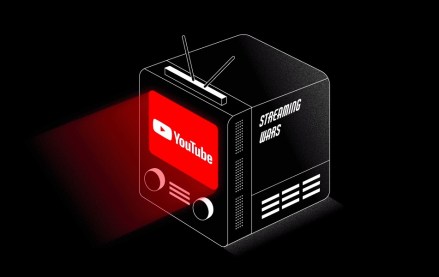Video Briefing: Snap wants more scripted original shows for Snapchat Discover
After premiering the first scripted original show on Snapchat in October, Snap is looking to add to its “Snap Originals” slate. In particular, the company is interested in acquiring more teen dramas and hard comedies, according to a document the company has shared with entertainment execs. The document outlines the types of scripted original shows Snap is on the hunt for in the first quarter of 2019. A Snap spokesperson declined to comment.
The key hits:
- Snap is willing to pay companies upfront to produce original shows.
- Series budgets can reach $50,000 per episode and go higher for scripted shows that are more expensive to produce.
- Lately Snap is looking to expand its teen drama slate and add more traditional comedies, instead of dramedies.
- The types of comedies Snap is seeking include animated shows and musicals.
- Snap is also looking for shows that represent Latino and African-American audiences.
- Series timed to events such as spring break, prom and Halloween are also of interest.
Earlier this month, we reported that Snap is offering to pay companies $40,000 to $50,000 an episode to produce original shows for Snapchat. The company is willing to open it’s wallet a bit wider for scripted shows, which typically run for around 10 episodes with each episode averaging five minutes in length.
Now, we have more details about what scripted shows in particular Snap has its eyes on, thanks to the aforementioned document.
Snap’s scripted interests break down into two main genres: teen dramas and hard comedies. Within those genres, the company is looking for specific types of shows, such as supernatural stories and musicals, as well as programs that appeal to Latino and African-American viewers or be timed to events like prom and Halloween.
Snap’s interest in teen dramas coincides with the success of “Dead Girls Detective Agency,” one of its first scripted shows, which garnered more than 14 million unique viewers, 40 percent of whom tuned in for the entire season, according to the company’s latest earnings report. However, the company isn’t exactly looking to clone that mystery show set in the afterlife.
Snap is looking for more shows set in supernatural worlds featuring characters with superpowers, but it’s also looking for “smart, soapy, character-driven stories” a la The CW’s “Riverdale” and “Skam,” a Norwegian web series that Facebook adapted for Facebook Watch. And of course, Snap has its eyes on romance and dating dramas, citing Netflix’s 2018 hit “To All the Boys I’ve Loved Before” as an example, even though the streaming service categorizes that movie as a comedy.
On the comedy side, Snap is in the market for “comedies that are big tent funny — hard comedy, not dramedy,” according to the document, citing films “Neighbors” and “Bridesmaids” as examples — “but younger.” Within the comedy category, Snap is looking for talent-centric shows in the vein of Comedy Central’s “Workaholics” and “Broad City” as well as genre mashups such as zombie comedy “Shaun of the Dead.” Those sub-categories don’t seem to be much of a departure from existing Snap Originals like ensemble comedy “Co-Ed” or travel comedy “#VanLife.” But Snap is looking to stretch into new areas. Snap is seeking animated comedies similar to Cartoon Network’s “Rick and Morty” as well as musicals a la “Pitch Perfect.”
Snap also wants shows that represent Latino and African-American audiences. The company also is interested in newer formats that creatively take advantage of the apps and services people us on their phones. For instance, Snap’s own “Co-Ed” features a lot of scenes presented as video chats.
Finally, Snap is looking for shows that align with certain interests and times of year. On the interests front, it’s seeking out shows related to hip hop music, mixed martial arts, gaming and fashion and beauty as well as programs that deal with today’s social issues. And then Snap would like to have shows that can be timed to events such as spring break, prom, music festivals, Halloween and final exams.
The addition of more scripted shows that can be groups into thematic packages could help Snap sell ads against its original programming. Currently Snap sells “show takeovers” for advertisers to sponsor individual Snap Original shows with three unskippable, six-second-long vertical video ads, which Snap calls “commercials,” according to a pitch deck the company provided to an agency. However, producing these ads can require more work of advertisers than repurposing their horizontal TV or online video ads, making Snapchat’s original shows inventory somewhat less attractive, according to an ad buyer at another agency. If Snapchat were to start selling sponsorships of multiple shows grouped by theme to aggregate more reach for advertisers, that would make for a more compelling package, this buyer said.
Forward the video briefing to a friend or colleague. And if someone forwarded this to you, sign up for yourself here.
Tim Peterson
Senior reporter, Digiday
Kerry Flynn contributed reporting.
Confessional
“I almost feel like I’m losing my partner. I’ve gotten bigger and am making more money, and they’re sending big checks. But now the level of attention [from Facebook] isn’t where it used to be. I asked a question about doing something with a video and couldn’t get an answer back.” — Facebook creator with hundreds of thousands of followers.
Numbers don’t lie
100 million: Number of adults in the U.S. that have watched videos that are part of Facebook’s In-Stream Reserve ad-buying program, the company said at an event it hosted in New York City on Feb. 26.
$1 billion: Total revenue that Roku expects to make in 2019, according to the company’s most recent earnings report.
29.6 million: Number of viewers that tuned into the Academy Awards on Feb. 24, the second-smallest viewership in the show’s history.
What we’ve covered
Facebook won’t renew two-thirds of funded news shows:
- Facebook has told news publishers that it will only renew one-third of the news shows that it’s financed for Facebook Watch.
- One publisher’s show was renewed, but its budget was trimmed by 30 percent.
Read more about Facebook Watch news shows here.
Ad buyers shrug at YouTube’s latest brand safety scandal:
- Disney, Nestle, McDonald’s and AT&T have pulled their ads from YouTube after appearing on videos featuring young girls that elicited inappropriate user comments.
- Only 14 percent of ad buyers polled by Digiday said they expect YouTube’s latest brand safety crisis to impact long-term spending.
Read more about YouTube’s ongoing brand safety problem here.
Programmatic advertising for connected TV is a work in progress:
- Advertisers are buying more connected TV ads programmatically than a year ago, per ad buyers, but they’re running into challenges.
- Buying connected TV ads programmatically can cost more than direct deals, and inventory and targeting options can be limited.
Read more about programmatic advertising on connected TV here.
What we’re reading
Someone’s about to buy streaming service Xumo: Free, ad-supported streaming video services have arisen as the anti-Netflix for cost-conscious connected TV viewers. Roku has one with the Roku Channel, and Amazon has followed suit with FreeDive. Other major media companies are trying to buy their way into this market. Last month Viacom acquired Pluto TV for $340 million, and now companies including Sinclair Broadcast Group are competing to snag one of Pluto’s rivals Xumo, according to Variety.
Spectrum is launching its own streaming TV service: Traditional pay-TV providers continue to go over the top of themselves by rolling out diet versions of their TV services that people can stream over the internet without a cable box or satellite dish. Following Dish Network’s Sling TV and DirecTV’s DirecTV Now, Spectrum plans to roll out its own streaming TV service by the end of March. Spectrum’s service will cost $15 a month. Considering that Hulu’s live TV service costs $45 a month, that’s cheap but about right considering that Spectrum’s channel line-up is missing many networks, including all of the major broadcast networks, ESPN, FX and Turner’s networks.
Disney plans to stop licensing shows and movies overseas (sub required): Netflix is not the only distributor that will be losing Disney’s content. According to The Information, Disney “plans to end most of its licensing deals for Disney-made TV shows and movies in the next two or three years.” The move may not be so surprising given that Disney plans to launch its Netflix rival, Disney+, later this year and people will be more likely to sign up for the subscription service if it’s the only place they can watch “The Lion King.” Still, considering that Disney’s licensing business is estimated to have generated $4.5 billion in revenue last year, cutting back on that business is a big bet on the streaming service.
More in Future of TV

Future of TV Briefing: YouTube develops new program to pitch brands on top creators’ shows
This week’s Future of TV Briefing reports on YouTube’s new pilot program that would have brands sponsor shows from top creators.

Future of TV Briefing: Brands are spending more to advertise creators’ content, making usage rights a focal point
This week’s Future of TV Briefing looks at what brands spending more money to promote creators’ content means for creator compensation models.

Future of TV Briefing: 5 ripple effects that will shape the future of TV in 2026
This week’s Future of TV Briefing looks at the trends and developments that will shape the TV, streaming and digital video industry in 2026.





